Faculty of Computer Science Students Took Top Three Places in Competitive Programming at Games of the Future
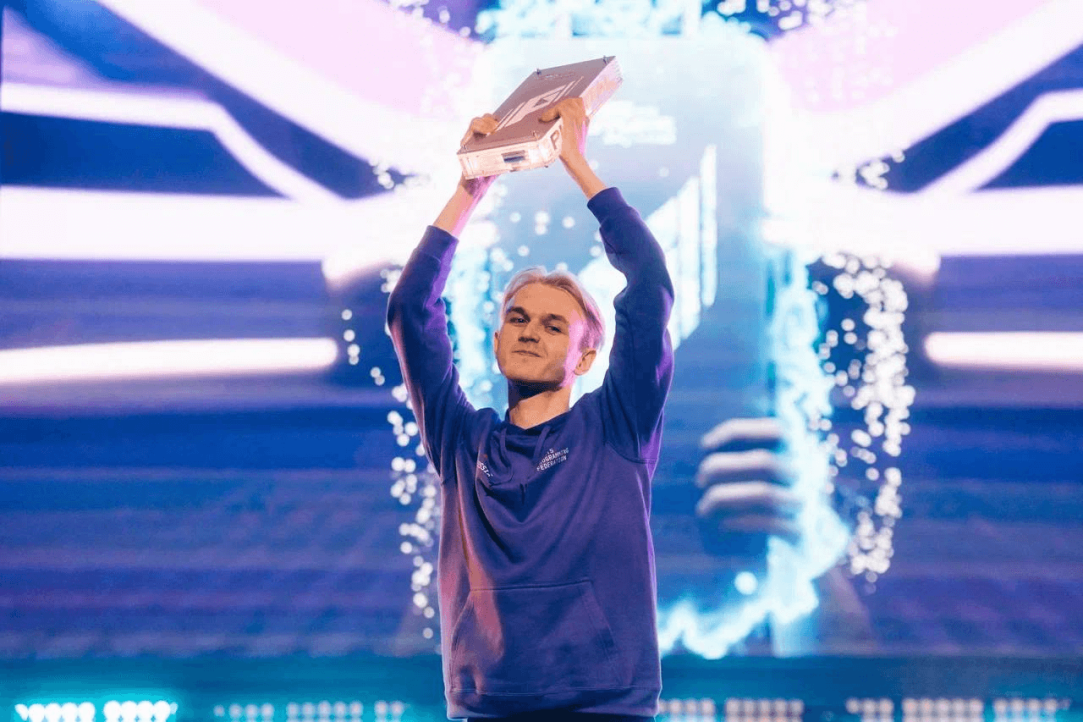
The Games of the Future in competitive programming were held in Kazan on February 28th–29th. 50 people from 27 countries took part in the competition. The Russian national team included seven students selected based on the results of the Russian championship organised by the Competitive Programming Federation. The team included three students from Applied Mathematics and Information Science at the HSE Faculty of Computer Science.
The Games of the Future is an innovative sports show that combines classic and digital sports.
The competitions last for more than 10 days and include:
21 disciplines
more than 2000 participants
107 countries
$10 million total prize pool
The competitive programming contests were held in two rounds, each lasting five hours. During this time, the participants had to solve 24 algorithmic problems by writing code in one of the proscribed programming languages. A prize fund of $250,000 was allocated to this discipline.
According to the competition’s results, the overall winner was Fedor Romashov, a second-year student on the bachelor’s programme in Applied Mathematics and Information Science, who solved a total of 22 problems. Fedor will become the first Master of Sports of Russia in programming.
The winner received a cash prize, as well as a tour to the Baikonur Cosmodrome.
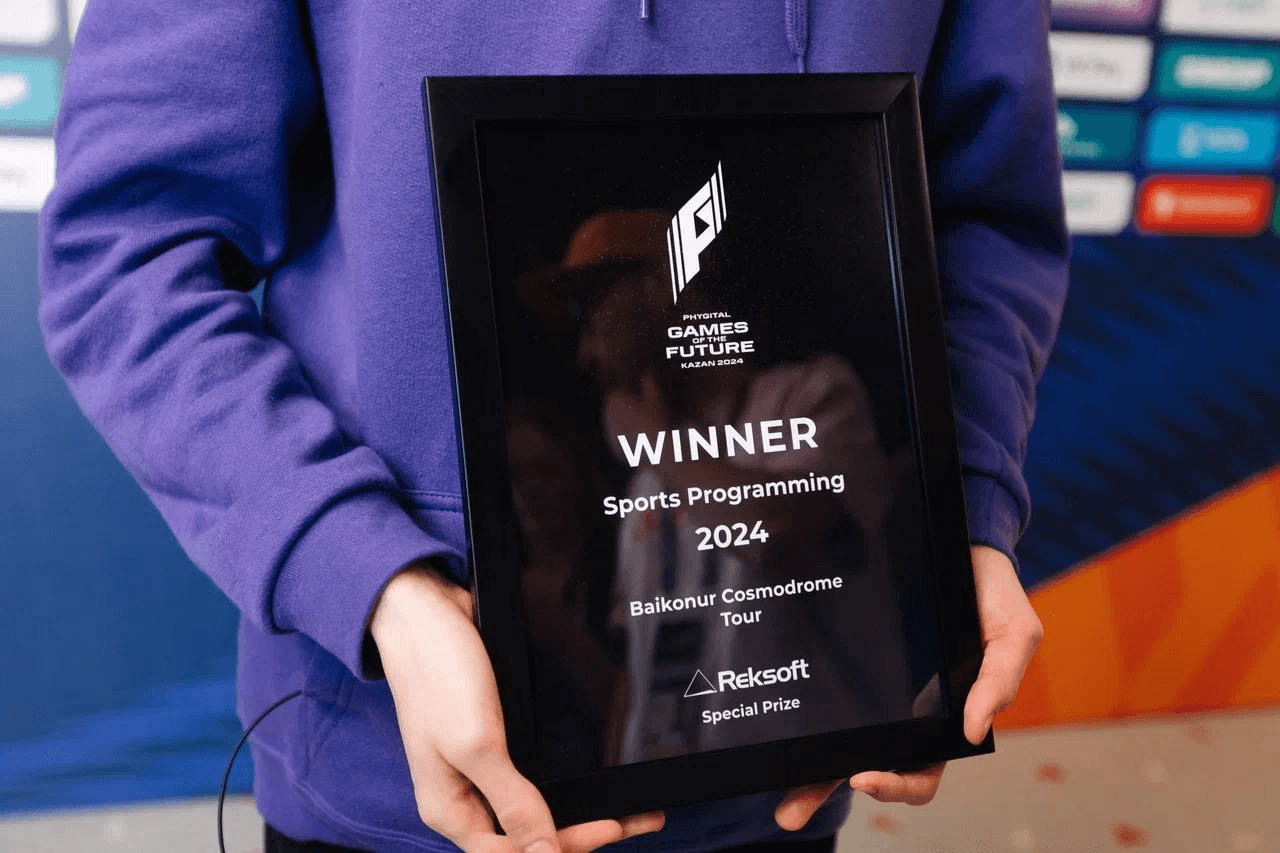
Fedor Romashov, a second-year student of the Bachelor’s Programme in 'Applied Mathematics and Information Science'
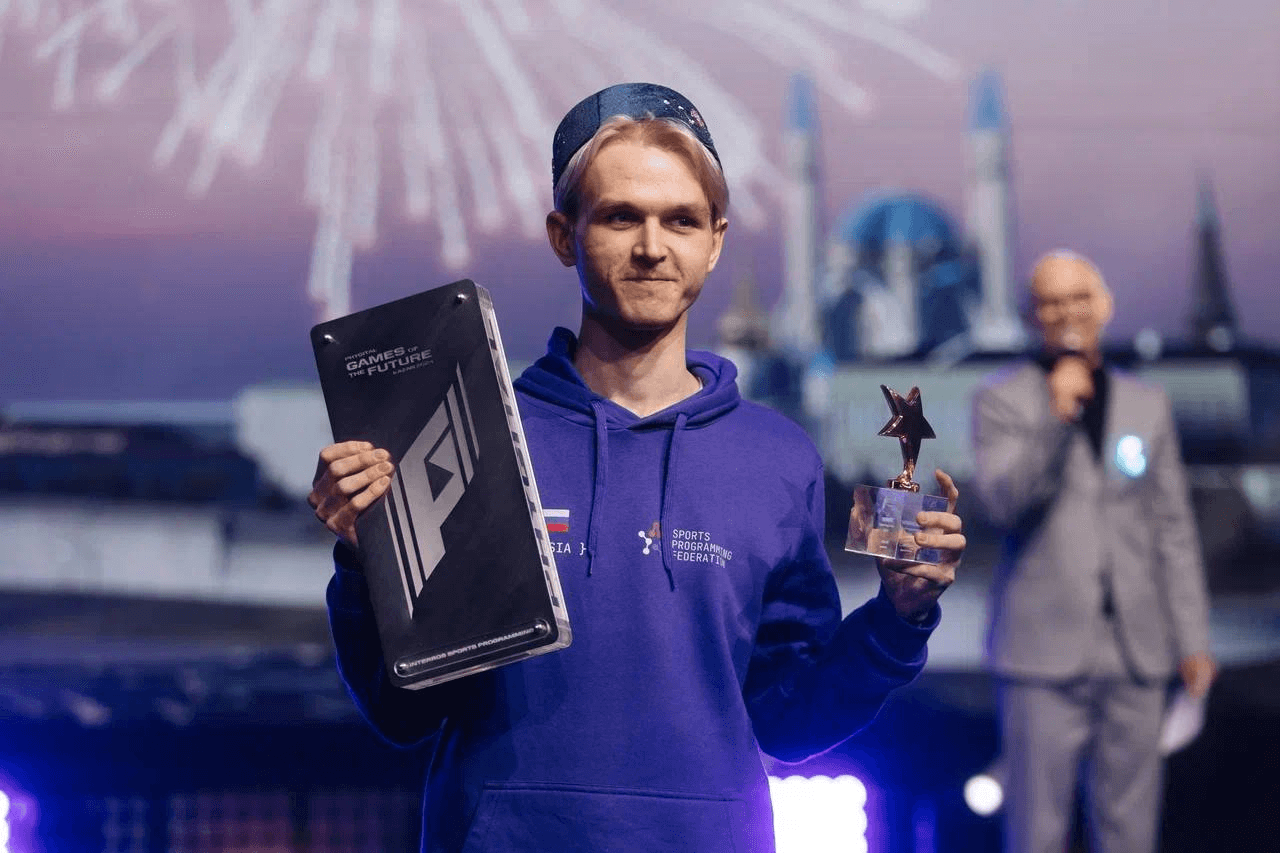
'The organisation and tasks were very good, I enjoyed all of it. While it was undoubtedly difficult, I expected to finish in the top five participants; I was almost sure that I would get into the top three, but, of course, I wanted to come first. I started the first day confidently, but the second round let me down. At first there were a lot of mistakes and unclear moments, and I felt that I could lose, but in the middle of the second round I managed to break into the top tier and gain a foothold in the leaderboard.
My teammates are very cool. Sasha is a smart programmer and mathematician, while Kirill writes code and solves problems unbelievably quickly. Each had their own strengths and weaknesses. I managed to win this time, but it was just through a stroke of luck. It is likely that Kirill or Sasha could have succeeded in other tasks, they are very talented. I am satisfied with our team and I hope we will perform well in the ICPC Finals.'
Second place was taken by Alexander Babin, a first-year student from the 'Applied Mathematics and Information Science' programme, who solved 20 problems.
Alexander Babin, a first-year student of the Bachelor’s Programme 'Applied Mathematics and Information Science'
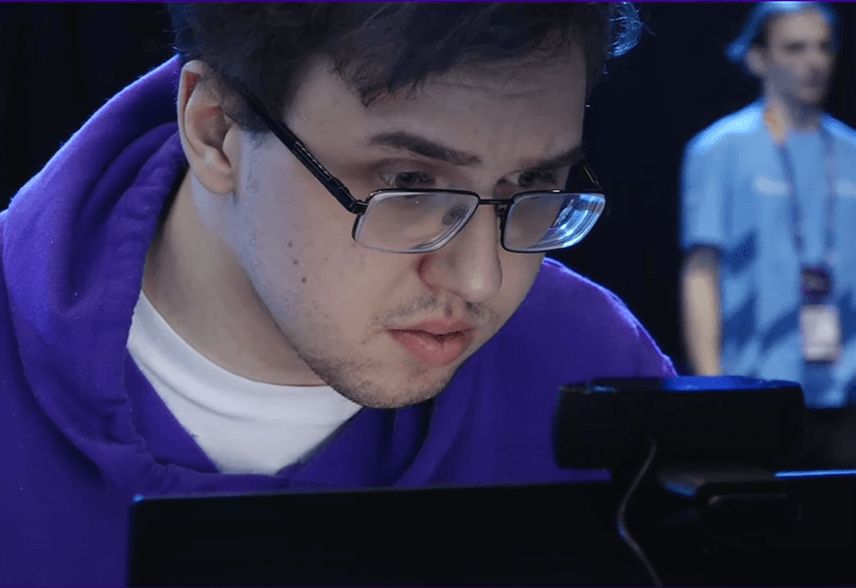
‘The organisation of the Games of the Future was of the highest quality, and we were especially pleased with how interesting the tasks were. Despite the fact that this competition was held individually, we partly considered it as a training session before participating in the ICPC Finals, so that each one of us could make a greater contribution to teamwork. I plan to spend my prize money on improving my living conditions—this will help me concentrate on my studies.’
Third place was taken by Kirill Kudryashov, a second-year student from the Applied Mathematics and Information Science programme, who solved 17 problems in two days.
Kirill Kudryashov, a second-year student of the Bachelor’s Programme in Applied Mathematics and Information Science
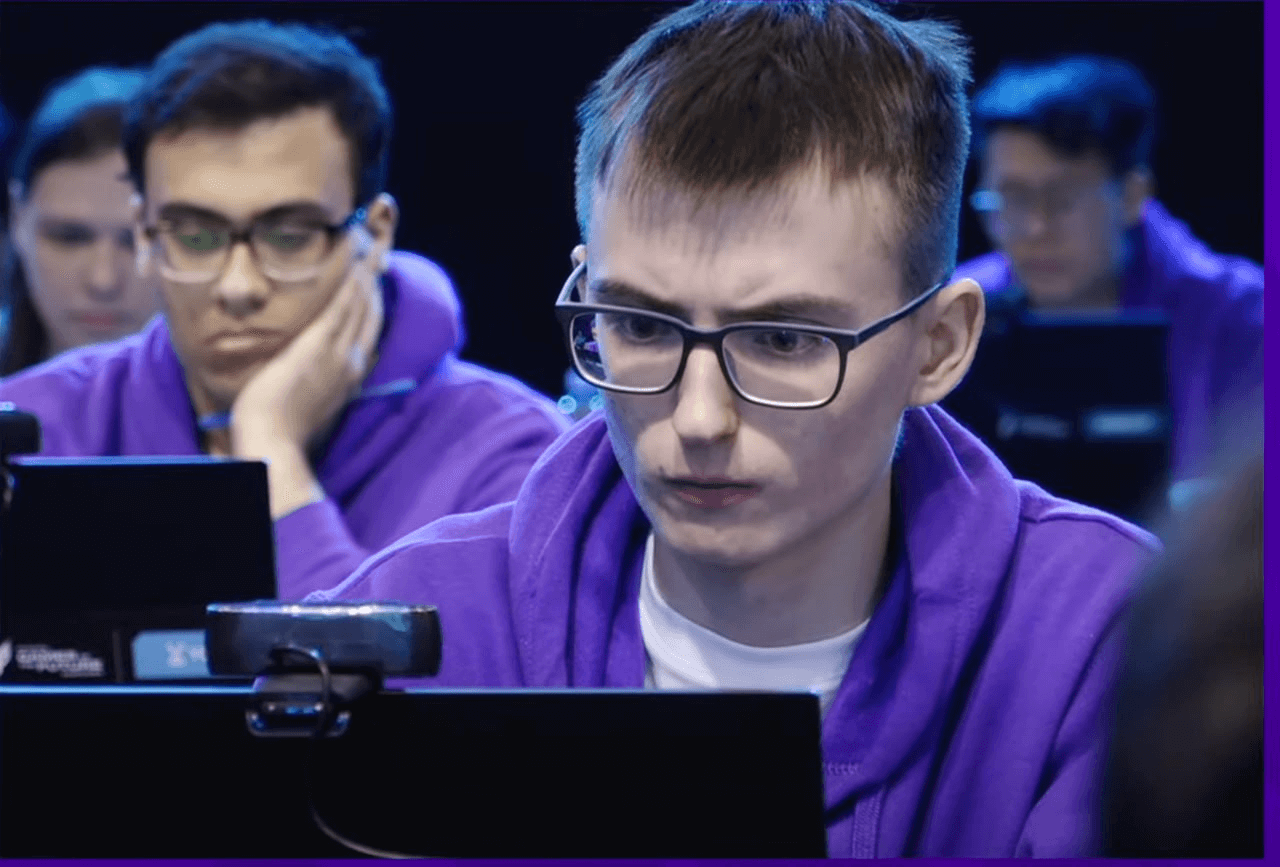
‘The competition was held according to standard ICPC rules. The only difference from regular competitions is that there were two rounds of five hours and as many as 12 tasks in each round. Usually, participants solve around six problems individually or 12-14 tasks per team. So, the competition required even more concentration, continuous work on the computer and great willpower.
At the end of the competition, Fedor Romashov took his well-deserved win, which was generally expected. My second teammate, Alexander Babin, comfortably took second place, after whom I came in third. I am happy with the result and delighted for my teammates, although I faced great difficulties during both rounds, which can be seen from my huge time penalties.
Personal competition is good, of course, but in a month the three of us will have the ICPC Finals, for which we are already actively preparing in order to bring home a good result to our beloved University.’
We congratulate the participants on the excellent results of the competition and wish them success at the ICPC Finals, which will be held on April 14th–19th in Egypt.
See also:
HSE University’s Faculty of Computer Science Teams Win ICPC International Collegiate Programming Contest
On April 14–19, 2024, two finals of the International Collegiate Programming Contest (ICPC) took place in Luxor (Egypt). The teams from HSE University’s Faculty of Computer Science became world champions in the 47th ICPC final and received gold medals in the 46th final.
HSE University Teams Win Gold and Three Bronzes in ICPC Semifinals
In December, the Northern Eurasia Regional Contests (NERC)—the semifinal of the ICPC international programming contest—took place. This year’s competition featured around 300 teams comprising 900 participants from Russia and other CIS countries. The contest took place simultaneously in St Petersburg, Novosibirsk, Astana, and Kutaisi. The majority of teams—a total of 152—took part in the competition at St Petersburg’s MTS Live Hall venue.
Students of HSE Faculty of Computer Science Win True Tech Champ by MTS
The final of the True Tech Champ Programming Olympiad from MTS took place at the end of October. Twelve students emerged as victors from the competition, including two second-year master’s students from the HSE Faculty of Computer Science, Ivan Safonov and Maxim Gorokhovsky.
HSE University Students and Graduates Among Winners of VK Cup ‘22/23
On February 5, the finals and award ceremony of the VK Cup ‘22/23 IT championship took place. The competition comprised two qualifying stages and one final stage. There were more than 5,000 applications for the qualifying stages, with a total of 80 participants making it to the finals.
HSE University Computer Science Teams Place First and Second in NERC ICPC 2022
Two teams from the HSE University Faculty of Computer Science (FCS) in Moscow have taken first and second place in the semi-finals of the 2022 International Collegiate Programming Contest (ICPC). The last time a single university took both first and second place was in 1997. Almost 250 teams took part in the event, five of which were from HSE University in Moscow. A team from HSE University in St Petersburg took fourth place. The winning team was awarded the winner’s trophy of the ICPC semi-finals, while the HSE University teams that placed second and fourth won gold medals.
Students of HSE University in St. Petersburg Win First Round of ICPC Semifinals
Students of the St. Petersburg School of Physics, Mathematics, and Computer Science Vasily Alferov, Konstantin Makhnev and Maxim Surkov, have won the online round of the ICPC semi-final - student world programming championship. A team from the Faculty of Computer Science of HSE University in Moscow is also in the top three. In addition, three more teams from HSE Moscow and St. Petersburg made it through to the next round.
Students of HSE Faculty of Computer Science Win the Quarter Finals of the World Programming Championship
Third-year students of the Bachelor’s Programme in Applied Mathematics and Information Science Ivan Safonov, Ramazan Rakhmatullin, and Maxim Gorokhovsky won the Moscow Regional Contest—the first qualifying round of the international student world programming championship ICPC 2020/2021. In total, 45 HSE University took part, with 30 of them receiving certificates of various degrees.
Two HSE University Teams to Compete in ICPC Finals
Students from both HSE Moscow and HSE St. Petersburg have made it to the finals of the ICPC-2020 World Programming Championship. They were among the best teams at the semi-finals stage of the championship, which took place last weekend in St. Petersburg.
Ten HSE Teams Advance to Semifinal in World Programming Championship
Students from all four HSE campuses have qualified for the semifinal of the ICPC Student Programming World Championship. The quarter-final stages of the tournament were held in the second half of October in Moscow, St. Petersburg, Yekaterinburg, and Saratov.
Dmitry Medvedev Meets ICPC Medalists, Including HSE Students
As part of the Moscow International Education Fair, Russian Prime Minister Dmitry Medvedev met with students who won medals at the biggest programming competition in the world. This global contest recently reached its conclusion in Portugal, and the prize winners include HSE’s Faculty of Computer Science team.


